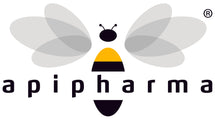In the world of natural health and wellness, propolis emerges as a hidden gem, cherished for its historical significance and potential therapeutic properties. Derived from the resinous secretions of trees and plants by bees, propolis has a rich tapestry of use dating back centuries. Today, it takes center stage in various products, such as Hemopropin and Kapsin, harnessing its unique attributes for contemporary well-being.
A Glimpse into History
Propolis, often referred to as "bee glue," has been an integral part of human history, finding its roots in ancient civilizations. The ancient Egyptians recognized its preservative properties, utilizing it in the embalming process. The Greeks, too, held propolis in high regard, acknowledging its medicinal potential for a range of ailments.
The term "propolis" is rooted in Greek, with "pro" meaning before and "polis" meaning city. This etymology reflects its primary function in sealing and protecting the beehive. Throughout time, diverse cultures have embraced propolis for its multifaceted benefits, from wound healing to immune system support.
Perceived Benefits: Nature's Potent Arsenal
The allure of propolis lies in its diverse array of potential health benefits, making it a sought-after ingredient in various natural health products. Rich in bioactive compounds, including flavonoids, phenolics, and essential oils, propolis offers a unique blend of antimicrobial, anti-inflammatory, and antioxidant properties.
-
Immune Support: Perhaps one of its most celebrated qualities, propolis is believed to fortify the immune system. Research suggests that its antimicrobial properties may contribute to the prevention of infections and support the body's natural defenses.
-
Wound Healing: Traditionally, propolis has been used topically for wound healing. Its ability to promote tissue repair and provide a protective barrier makes it an attractive option for skincare and first aid applications.
-
Anti-Inflammatory Action: The anti-inflammatory properties of propolis are well-documented, making it a potential ally in managing various inflammatory conditions, from arthritis to respiratory issues.
-
Dental Health: Propolis has found its way into oral care products due to its antimicrobial properties. Some studies indicate its efficacy in combating oral bacteria, contributing to improved dental health.
Lack of Concrete Proof in the US
While propolis boasts a wealth of historical and anecdotal evidence supporting its benefits, the scientific community in the United States maintains a cautious stance. Rigorous, standardized research is needed to establish conclusive links between propolis and specific health outcomes. The lack of a universally accepted definition and composition for propolis across different products adds complexity to scientific investigations.
Regulatory bodies, including the Food and Drug Administration (FDA), have not approved specific health claims for propolis. This calls for a discerning approach by consumers, emphasizing the importance of evidence-based decision-making and consulting healthcare professionals when considering propolis supplementation.
Caution for Bee Product Allergies
Despite its potential benefits, propolis is not without its risks, particularly for individuals with allergies to bee products. Allergic reactions can range from mild symptoms, such as itching and swelling, to severe anaphylaxis. Individuals with known bee product allergies should exercise caution and seek guidance from healthcare professionals before incorporating propolis into their health regimen.
Navigating the Propolis Landscape
As consumers navigate the expansive landscape of propolis-infused products, several key considerations should guide their choices:
-
Quality Assurance: Opt for products from reputable brands that prioritize transparency in sourcing and production. High-quality propolis ensures a more potent and reliable product.
-
Consultation with Professionals: Before introducing propolis supplements or topical products into your routine, seek advice from healthcare professionals. They can provide personalized guidance based on your health history and potential interactions with other medications.
-
Allergy Awareness: Individuals with known allergies to bee products should exercise caution and consider alternative options. It's crucial to prioritize safety and well-being.
-
Stay Informed: As research on propolis evolves, staying informed about developments in the field ensures that consumers make educated decisions aligned with the latest scientific insights.
In conclusion, propolis stands as a testament to the enduring synergy between nature and human health. Its rich history, perceived benefits, and contemporary applications in products like Hemopropin and Kapsin underscore its timeless appeal. As we embrace the potential of propolis, let us do so with a blend of reverence for tradition and a commitment to evidence-based wellness.
Celebrating Apipharma's 50th Anniversary - Inspiring Good Health and Happiness Since 1974


